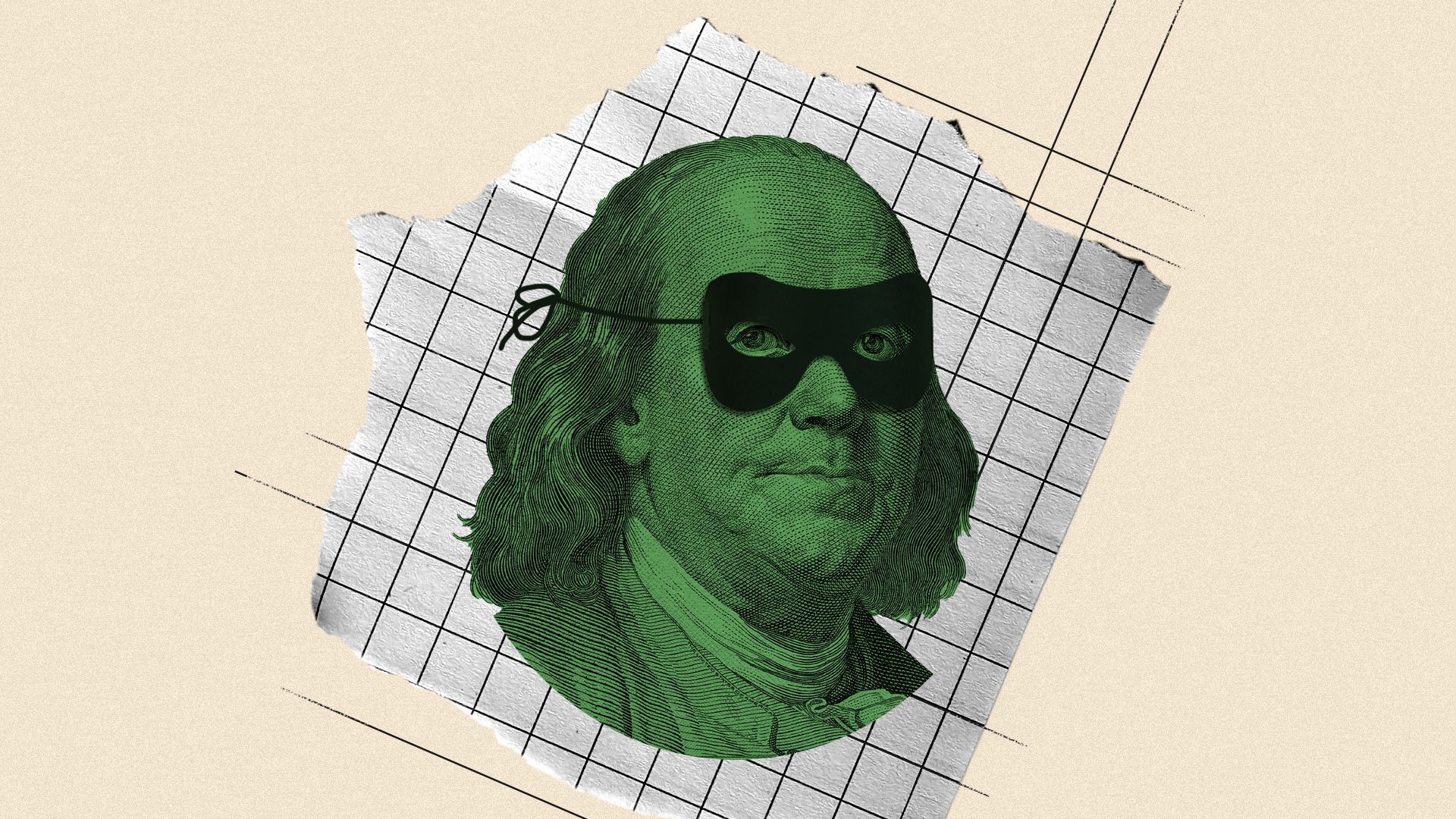| You only find out who is swimming naked when the tide goes out. Bull markets engender trust that verges on complacency, or even gullibility. When they start to drop — as they are doing right now — there is a sharp rise in mistrust, as frauds are uncovered and shady dealings condemned, Axios' Felix Salmon writes. Why it matters: Regulators have signaled they're more serious about cracking down on financial criminals than they have been in decades. Such activity is unlikely to be hard to find. Driving the news: Federal prosecutors in New York last month charged hedge fund manager Bill Hwang with federal racketeering charges that could send him to prison for the rest of his life. The Department of Justice is reportedly using big banks as its informants on Wall Street. And the SEC is doubling the size of its division devoted to prosecuting crypto fraud. - Be smart: "The everything crackdown" seems to have arrived. The resulting headlines are only going to increase the degree to which normal Americans think that the market is rigged against them.
Between the lines: Hwang didn't profit at the expense of others — in fact, he was the biggest loser in his scheme. But losing money is no defense. - In cases like these, losing money can be precisely what causes shady activity to be uncovered. The allegedly defrauded counterparties — ultra-sophisticated financial institutions who had their eyes wide open at all times — only realized something was wrong when they (and Hwang) lost billions.
- Prosecuting Hwang will be hard and will take many years. In the crypto world, by contrast, it's hard not to find activity that thumbs its nose at securities law.
The big picture: In general, economies grow faster the more that participants can trust each other. But there will always be bad actors who take unfair advantage of that trust. - When markets turn, more investors tend to want to take their money out. That's when victims of fraud find out the money has disappeared. The Bernie Madoff fraud is a prime example — it couldn't survive the downturn of 2008, since the higher Madoff marked his clients' positions, the more likely they were to want to cash out.
- Until the point of discovery, the money is gone, but the victim feels no loss. Economist John Kenneth Galbraith, writing in 1955, named this "net increase in psychic wealth" the bezzle, and explained that it invariably increases in bull markets, only to shrink when "money is watched with a narrow, suspicious eye."
The bottom line: As John Mills wrote in 1867: "Panics do not destroy capital; they merely reveal the extent to which it has been previously destroyed by its betrayal into hopelessly unproductive works." | 










No comments:
Post a Comment